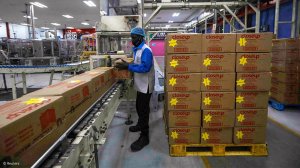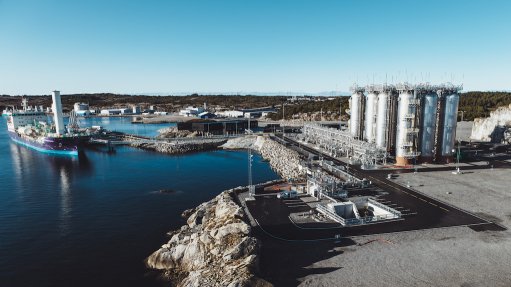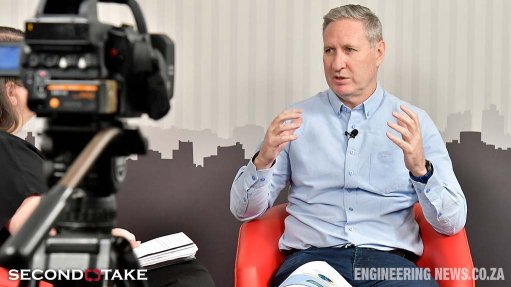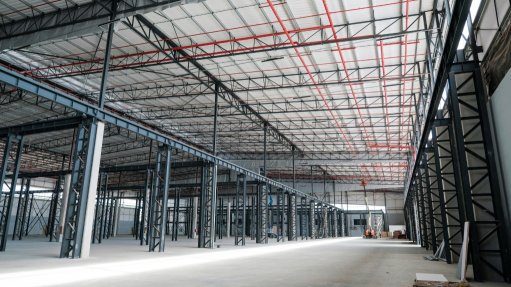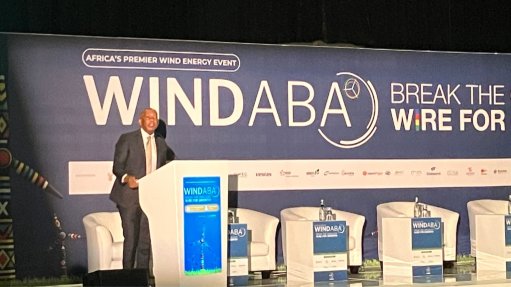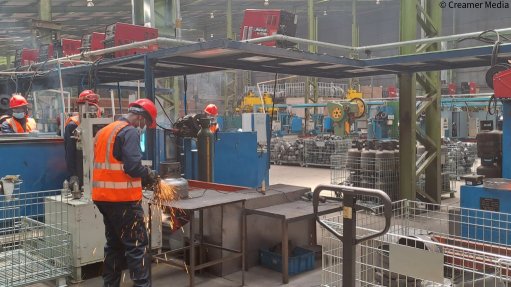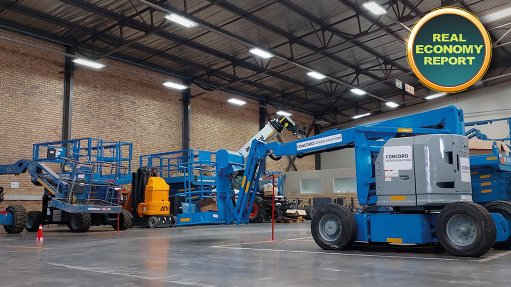Unilever pivots to African suppliers as forex pressure mounts
Busari Kasali once lived with the fear that his cassava - a staple crop in his native Nigeria - would spoil before it got to market. Today, the 76-year-old says his main concern is keeping up with growing demand from consumer goods giant Unilever.
"Things have changed," Kasali said, as his workers loaded trucks with a bumper harvest of the starchy roots destined for processing into toothpaste. He said his earnings have nearly tripled in the past two years.
"We now plant as much as we want ... We know where to sell it."
Amid pandemic-provoked supply chain disruptions, soaring costs and growing currency volatility, Unilever is working to make its African operations more self-reliant, ramping up local sourcing in part to reduce its foreign exchange exposure.
That spells a potential boon for farmers and processors in several parts of Africa, experts say.
Like many global companies, Unilever has grappled with rising energy and raw material costs for the past two years. The war in Ukraine exacerbated supply chain logjams and manufacturing issues that began with the Covid-19 pandemic.
Unilever - which owns brands including Knorr, Hellmann's and Ben & Jerry's - took a more than €4-billion hit on net material inflation last year. And it expects prices for some commodities to surge further the first half of this year.
Managing foreign exchange costs is largely what is driving a pivot to African suppliers, Unilever said, even though sourcing from the continent can cost more than buying from parts of Asia.
Growing debt woes in many African nations have put pressure on foreign reserves and created currency volatility that makes it harder and more expensive to ship in inputs.
"Over 95% of the brands we sell to our (African) consumers are made in African factories," Reginaldo Ecclissato, Unilever's chief business operations and supply chain officer, told Reuters.
"But, until quite recently, we could only source under a third of the inputs we need from within Africa."
Unilever declined to share figures on the scale of its shift in Africa or the overall economic impact.
Today more than two-thirds of the ingredients that go into Unilever products sold in African markets come from the continent, the company said.
In particular, it is ramping up sourcing of sorbitol and spices - which were previously imported from India and China - from suppliers in countries including South Africa and Nigeria.
Unilever is not alone. Tedd George, a supply chain consultant specialising in Africa, said other companies including Nestle and Danone are also delving deeper into Africa, drawn in part by its rapidly growing consumer market.
They are also seeking to reduce their dependence on China to avoid a future repeat of the paralysis caused by Beijing's tight pandemic lockdowns, he said.
Nestle did not respond to a request for comment for this story, while Danone declined to comment.
"What is happening in China is pushing people to find alternatives," said Pierre-André Térisse, a former Danone executive who ran the dairy giant's Africa business from 2015 to 2018.
"That's an opportunity for Africa."
'GARGANTUAN' POTENTIAL
While Unilever launched its push to boost sourcing from Africa four years ago, the plan accelerated during the pandemic, Ecclissato said.
In South Africa, for example, it's developed a smallholder farmer network to grow coriander and chilies for its local Roberstons spices brands, Rajah curry blends and Knorrox bouillon cubes, replacing spices previously sourced in India.
In Nigeria, where its Lagos factory produces 10 000 to 14 000 tonnes of CloseUp and Pepsodent toothpaste annually, Unilever is ramping up local sourcing of sorbitol, an ingredient previously brought in from China that can be extracted from cassava.
Yemisi Iranloye, whose company Psaltry International in Oyo State processes cassava from around 10 000 farmers including Busari Kasali, is cashing in on the shift.
Having started supplying Unilever with sorbitol only late last year, the multi-national now buys around 70% of Iranloye's sorbitol production, accounting for some 40% of Psaltry's total turnover.
Unilever's Ecclissato said buying local allows for closer supplier partnerships, shipping savings and a reduced carbon footprint. Importantly, it also reduces the foreign exchange required to pay for imports.
For a company like Unilever, whose Nigeria business alone reported turnover of 70.5-billion Nigerian naira ($153-million) in 2021, the cost of sourcing those dollars can add up fast.
Iranloye, who also supplies Nestle and Danone, thinks that desire to hedge against dollar scarcity and local currency fluctuations is fueling demand from all her customers. She expects Psaltry's turnover to more than double this year.
"It also means better livelihood for the populace on the continent, especially the farmers," she said, as, nearby, machines washed a newly arrived load of cassava.
Still, while Unilever's size and reach could make it a transformative force in Africa, some, like Tedd George, argue it's not yet clear whether the company is leveraging its full might.
"Where is it on the scale of African trade? Where is it on the scale of Unilever's supply chain?" he said. "Because the thing is Unilever, they're absolutely gargantuan."
Africa's own capacity to produce raw materials - particularly agricultural commodities - may also be a limiting factor, at least for now.
Iranloye recently upgraded her cassava processing facility to keep up with growing demand, including from Unilever. But it's currently only operating at around 60% of capacity.
"We still don't have enough cassava," she said. "Raw material is a challenge. Farmers need to be properly funded."
Article Enquiry
Email Article
Save Article
To advertise email advertising@creamermedia.co.za or click here
Comments
Press Office
Announcements
What's On
Subscribe to improve your user experience...
Option 1 (equivalent of R125 a month):
Receive a weekly copy of Creamer Media's Engineering News & Mining Weekly magazine
(print copy for those in South Africa and e-magazine for those outside of South Africa)
Receive daily email newsletters
Access to full search results
Access archive of magazine back copies
Access to Projects in Progress
Access to ONE Research Report of your choice in PDF format
Option 2 (equivalent of R375 a month):
All benefits from Option 1
PLUS
Access to Creamer Media's Research Channel Africa for ALL Research Reports, in PDF format, on various industrial and mining sectors
including Electricity; Water; Energy Transition; Hydrogen; Roads, Rail and Ports; Coal; Gold; Platinum; Battery Metals; etc.
Already a subscriber?
Forgotten your password?
Receive weekly copy of Creamer Media's Engineering News & Mining Weekly magazine (print copy for those in South Africa and e-magazine for those outside of South Africa)
➕
Recieve daily email newsletters
➕
Access to full search results
➕
Access archive of magazine back copies
➕
Access to Projects in Progress
➕
Access to ONE Research Report of your choice in PDF format
RESEARCH CHANNEL AFRICA
R4500 (equivalent of R375 a month)
SUBSCRIBEAll benefits from Option 1
➕
Access to Creamer Media's Research Channel Africa for ALL Research Reports on various industrial and mining sectors, in PDF format, including on:
Electricity
➕
Water
➕
Energy Transition
➕
Hydrogen
➕
Roads, Rail and Ports
➕
Coal
➕
Gold
➕
Platinum
➕
Battery Metals
➕
etc.
Receive all benefits from Option 1 or Option 2 delivered to numerous people at your company
➕
Multiple User names and Passwords for simultaneous log-ins
➕
Intranet integration access to all in your organisation




